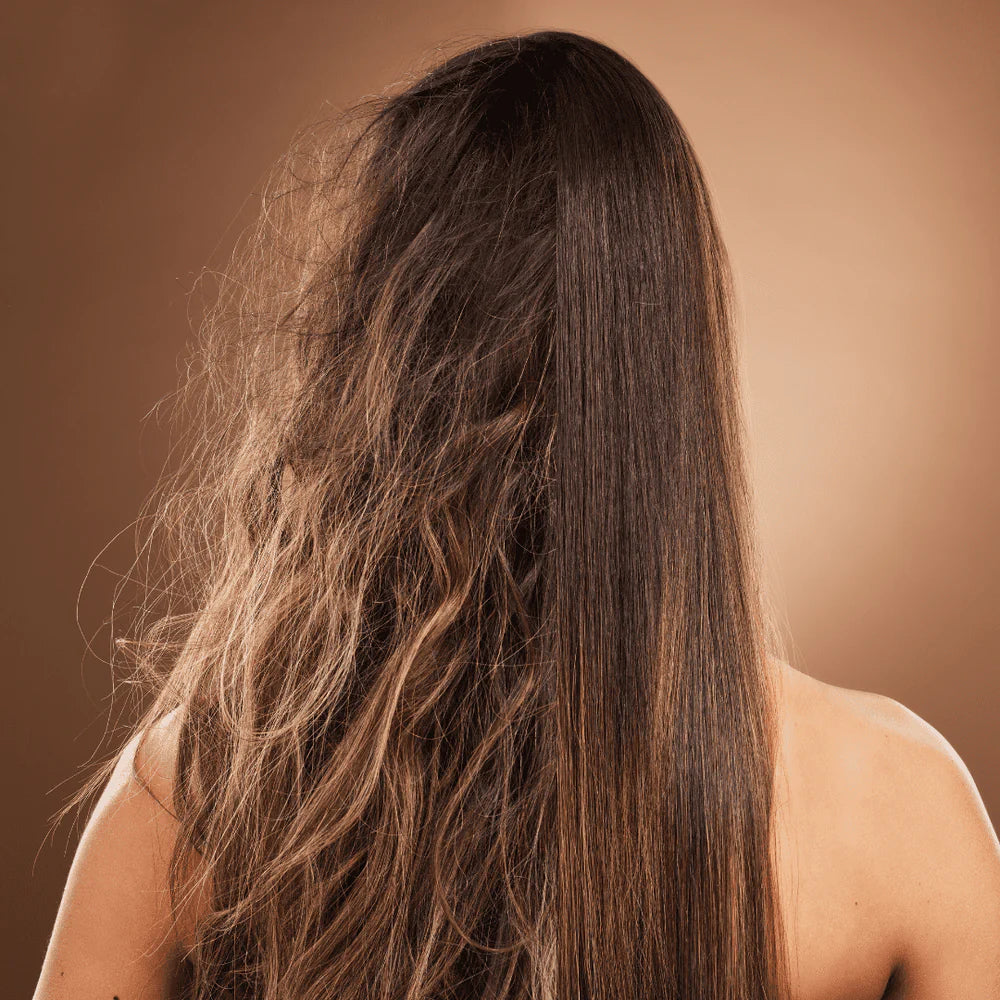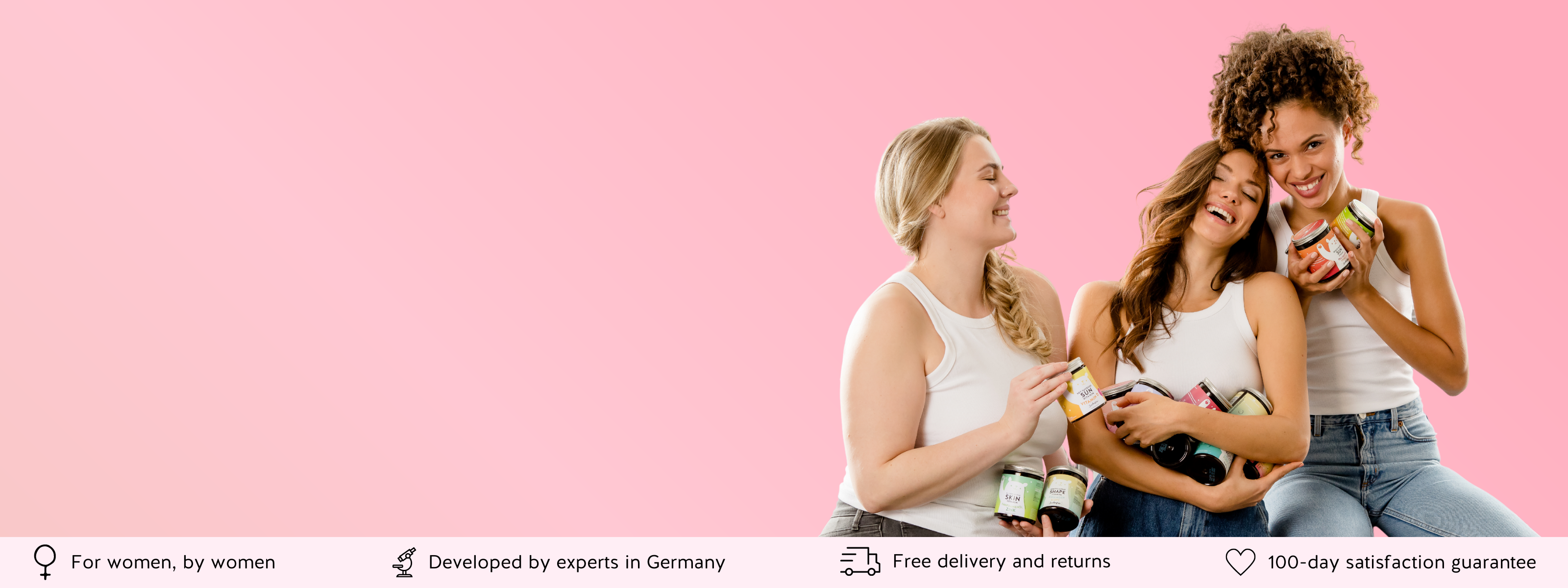Keratin
what is keratin?
Keratins are a group of structuring proteins essential for the formation of intermediate filaments. They give the cell stability and its characteristic shape. Keratin plays an important role in the formation of hair, nails and the outer layer of the skin (epidermis). It supports the skin, promotes wound healing and positively influences the health of nails and hair.
There are two main forms of keratin:
Alpha-keratin: Alpha-keratin is found in the hair, epidermis, horns and nails of mammals.
Beta-keratin: Beta-keratin is found in the feathers, claws, beaks and scales of birds and reptiles.

WHAT FOODS STIMULATE KERATIN PRODUCTION?
- Eggs are rich in keratin, and the protein in eggs also stimulates keratin production.
- Onions contain a considerable amount of N-acetylcysteine, a plant antioxidant. This is converted in the body into the amino acid L-cysteine, which in turn is a building block of keratin protein.
- Salmon is a very good source of biotin, which is important for keratin production. In addition, salmon is an excellent source of omega-3 fatty acids. They have been shown to promote hair growth. They have been shown to promote hair growth, increase hair density and prevent hair loss when taken in supplement form.
- Sweet potatoes are not only versatile as a vegetable, they are also highly nutritious and promote keratin production.
- Sunflower seeds are a good source of biotin and protein, which promote keratin production.
- Mango promotes keratin synthesis and contains important nutrients for skin and hair.
- Garlic also contains a considerable amount of N-acetylcysteine, which is converted to L-cysteine in the body. L-cysteine is an essential amino acid of great importance for keratin formation, as it contributes significantly to the structure and stability of this protein-rich material.
- Carrots are rich in vitamin C, which favours the synthesis of collagen and contributes to the overall health of the hair, skin and nails.

WHAT IS KERATIN GOOD FOR?
Smooth, shiny, healthier-looking hair
Keratin acts on the cells that overlap to form hair strands, smoothing the hair and reducing frizz. The result is hair that is less frizzy when dry and looks shiny and healthy. Keratin has also been found to help reduce the appearance of split ends by temporarily binding the hair. In addition, keratin has been found to reduce hair loss, making hair appear stronger and more radiant. Researchers also concluded that keratin-enriched products moisturised the hair and sealed the hair cuticle.
Long-lasting results
If you take care of your hair with keratin by not washing it too often (2 to 3 times a week is enough), the effects of keratin treatment can last up to 6 months.
More manageable hair
Keratin treatments greatly improve the manageability of hair, especially in the case of frizzy or coarse hair. If you comb your hair frequently, you will find that it dries faster with a keratin treatment. Some estimate that keratin cuts drying time by more than half. It can also make hair healthier and stronger.
Hair growth
Keratin can make hair stronger and more resistant, reducing breakage. This, in turn, can accelerate hair growth, as the ends break off less easily.
Stronger and smoother nails
According to a study conducted by Cleveland Clinic, adults that ingested a soluble keratin supplement during 3 months found their nails to be stronger and healthier-looking. Keratin is also known to smoothen the texture of the nails.
(Cleveland Clinic)

NASSIM JAMALZADEH:
"As can be easily seen from the studies, keratin is very important for the hair structure, but also for the nails. Keratin is supposed to ensure a fast regeneration of the hair in order to prevent external damage. This effect is also observed in the nails.
If you want to do something good for your nails and hair, I recommend you to take keratin. Try our new You Nailed It! Nail & Hair Keratin Vitamins. Unlike shampoos with keratin, our bears work from the inside out. All you have to do is convince yourself."
FAQ about keratin
FAQ about keratin
There is still no unanimous expert opinion on the recommended daily amount of keratin. Keratin is an important component of sulphur, which is classified as a bulk element. A daily intake of 50 mg of bulk elements such as sulphur is recommended. However, diverging research results indicate that a higher intake of keratin should be considered. Determining the optimal daily intake thus depends on individual physical needs.
The body produces the keratin it needs from proteins in its diet. In addition, vitamins such as biotin and vitamin A are also involved in keratin production. If the body cannot produce enough keratin (e.g. because the diet is too low in protein or important nutrients), it will show in the hair, nails and skin. Hair and nails may grow more slowly and become more brittle, duller and less shiny. Another effect may be thinner hair. The skin may appear duller, drier and even ageing.
The use of creatine supplements is generally considered safe. Even in studies where participants took 30 grams daily over a five-year period, no harmful side effects were found. Excess creatine is simply excreted from the body in the urine. However, taking very large amounts of creatine at one time can cause unpleasant symptoms such as nausea, vomiting or diarrhoea. People with kidney disease should consult their doctor or pharmacist before taking creatine supplements. This is important because the kidneys normally excrete excess creatine, and it has not yet been conclusively established whether increased creatine intake in these cases can have adverse health effects.
According to available research, taking keratin in supplement form does not appear to have any negative effects. However, be sure to take the correct daily dose. You should also look for soluble keratin (also called hydrolysed keratin), as the body easily digests it. It may be useful to consider supplementing your keratin supplement with biotin to stimulate keratin production.
Let customers speak for us
STUDIES ON THE IMPORTANCE OF KERATIN
The following scientific studies are made available for your general information. The results obtained in these studies are not necessarily applicable to everyone. Please feel free to click on the corresponding links for more detailed information.
Keratin structure
This study is dedicated to the presentation of the hierarchical, secondary and molecular structure of keratins in order to promote the development of new biomimetic materials.
Effects of nutrient deficiency on nails
This article describes the anatomy of the nail, its chemical composition and the effects of nutrient deficiencies on nail growth. It also discusses the use of nutritional supplements to treat brittle nails and the role of biotin in nail disorders.


















